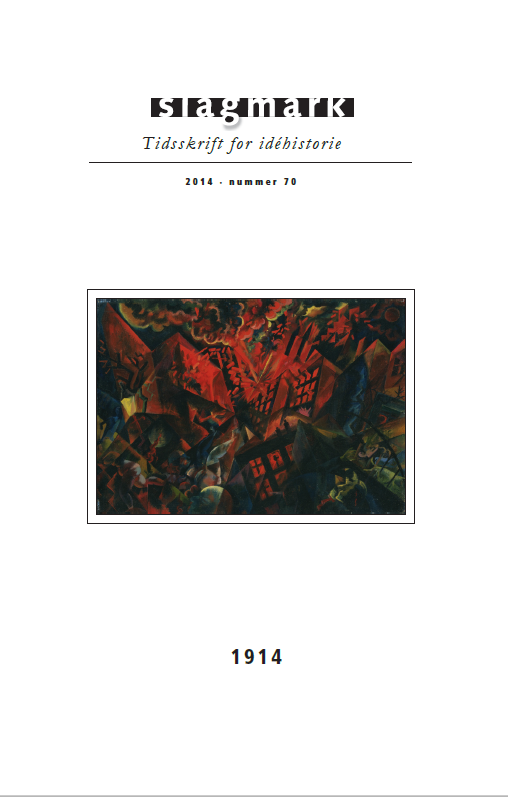Thomas Mann - Gennem krigens sygdomme mod en ny humanisme
DOI:
https://doi.org/10.7146/sl.v0i70.104412Nøgleord:
Culture, Civilization, World War I, Humanism, Pharmaconic logicResumé
The German author and Nobel Prize winner Thomas Mann (1875-1955) perceived World War I as a moral battle against the civilization project rooted in the European enlightenment. Like many other German intellectuals of that time, Mann stresses an opposition between the concept of culture and that of civilization – this conflict is seen as inherent in the European soul – and defends Germany’s right to remain a culture that does not evolve into a civilization. The concept of culture can contain irrational features such as mystical, bloody and terrifying teachings, whereas civilization is characterized by reason, enlightenment, skepticism and hostility towards passion and emotion. In his major work The Magic Mountain (1924) however, Mann tries to overcome this opposition and displays, through the metaphors of the text, that a new humanism is dependent upon a mystical and completely illogical balance between culture and civilization. The main character of the novel does not succeed in finding this balance. But, nonetheless, Mann continues to see the possibilities of a new humanism through this perspective in order to point out a humanistic hope in the shadesof two European world wars.
Downloads
Publiceret
Citation/Eksport
Nummer
Sektion
Licens
Ophavsretten til artiklerne i Slagmark deles mellem forfatter og Forlaget Slagmark.
Artikler og tekstmateriale publiceret i Slagmark må citeres, downloades og videresendes for ikke-kommerciel brug, under forudsætning af normal akademisk reference til forfatter(e) samt tidsskrift, årgang, nummer og sider.
Brug og distribution af tekstmateriale både i form af papirkopier og elektroniske kopier, til undervisningsbrug på uddannelsesinstitutioner og intern brug er tilladt efter aftale med Copydan Tekst & Node. Brugen skal ske inden for aftalens rammer.
Artikler og tekster må kun genudgives med eksplicit tilladelse fra forfatter(e) og tidsskriftet med en anerkendelse af værkets første publicering i nærværende tidsskrift.





